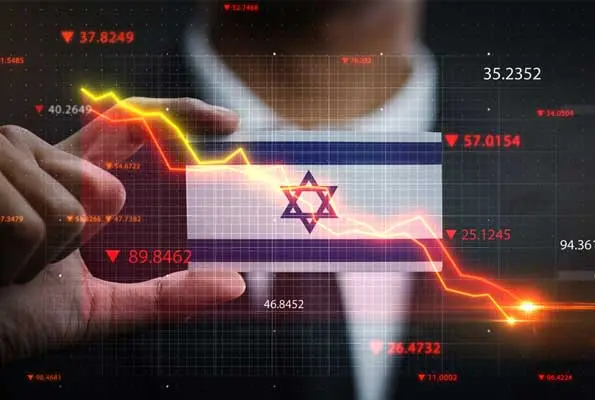BDS (Boycott Divest Sanctions) is a global nonviolent protest movement. It is using economic and cultural boycotts, financial divestment, and government sanctions to pressure Israel to follow international law and end its controversial policies toward Palestinians, which some human rights experts and legal scholars call apartheid.
BDS is a technique, not an organisation, where diverse groups are launching campaigns with different goals, but all have a moral foundation and peaceful opposition tactics. BDS is inspired by the South African anti-apartheid campaign and the US civil rights movement, which included boycotts. The movement was vigorously defended by Archbishop Desmond Tutu, who called the comparisons between apartheid South Africa and Israel “painfully stark.”
BDS aims to fracture Western support for Israel. A representative for the BDS National Committee, which represents Palestinian civil society groups that created BDS, said that it promotes a “narrative shift on the question of Palestine” that prioritises Palestinian rights.
This large alliance announced the first international boycott, divestment, and censure of Israel in 2005. The United Nations Relief and Works Agency for Palestine Refugees reported over 4 million Palestinian refugees since Israel’s founding. In an advisory opinion a year earlier, the International Court of Justice declared Israel’s separation wall in Palestine’s West Bank, where illegal Israeli settlements continue to grow, illegal.
“Trade unions, farmers unions, students and academics, artists, climate justice groups, Indigenous justice networks, LGBTQ+ activists, and many more groups have taken up the [BDS] cause,” the national committee spokeswoman told Vox.
The BDS homepage mentions seven United States advocacy groups, including the Jewish Voice for Peace, Democratic Socialists of America, and the US Campaign for Palestinian Rights. Rep. Cori Bush (D-MO), Lauryn Hill, Sally Rooney, Naomi Klein, and Arundhati Roy support BDS.
These groups and people demand that Israel stop its occupation of the West Bank, Gaza, and East Jerusalem, provide Palestinian citizens full rights, and enable Palestinian refugees to return home. From personal boycotts of goods and companies to worldwide calls for sanctions and embargoes against Israel, BDS has grown.
Besides Israeli corporations like SodaStream, BDS has boycotted non-Israeli multinational giants it feels mistreat Palestinians. While other BDS groups may boycott many firms and items, the BDS National Committee focuses on a few strategic targets.
It is currently promoting Hewlett Packard, an American business worth more than USD 25 billion best known for its printers because it claims HP’s biometric ID system has helped Israel monitor and limit Palestinian travel. HP responded that it “does not take sides in political disputes between countries or regions” and “implements rigorous policies to respect human rights.”
The BDS campaign has convinced several high-profile companies, including Ben & Jerry’s and Orange, to stop selling in occupied Palestinian territories and end their business partnership with Israel. In 2014, SodaStream closed its West Bank production due to BDS pressure and allegations of mistreating Palestinian workers. Some BDSers boycott the Israeli beauty brand MoroccanOil.
Boycotts against Israel go beyond store purchases. BDS wants supporters to boycott Israeli cultural institutions and colleges that it claims promote degrading narratives about Palestinians and the occupied territories. One BDS tactic is to discourage musicians, artists, and celebrities from visiting Israel. British musician Sam Smith cancelled an Israel show this year after BDS protests.
Elvis Costello in 2010, Lauryn Hill in 2015, and Lana Del Rey in 2018 also cancelled Israeli shows. In 2018, Lorde cancelled a Tel Aviv concert after campaigners asked her to boycott Israel. In 2019, Israel hosted Eurovision, which was boycotted. The event, however, went as anticipated. Michael Bennett withdrew from an Israeli government-sponsored trip in 2017 citing Muhammad Ali as a role model who “stood strongly with the Palestinian people.”
The call to divest forces enterprises to avoid Israeli companies, investors to withhold capital, and banks and pension funds to not invest consumer money in Israel. BDS has convinced Luxembourg, New Zealand, and Norway government pension funds to divest from Israel.
BDS calls for an embargo on arms and military aid, as well as a halt to trade and diplomacy with Israel.
BDS supporters say political leaders—especially the US government—must be pressured now. “It’s our tax dollars and our US weapons,” says Ahmad Abuznaid, executive director of the BDS-aligned US Campaign for Palestinian Rights. According to a Congressional Research Service analysis, the US has sent USD 158 billion in aid, and the Biden administration recently proposed a $106 billion foreign aid package that would include $14 billion for Israel. Meanwhile, the White House has opposed a truce. The US blocked a UN Security Council resolution asking for a Gaza “humanitarian pause” recently.
BDS’s economic impact on Israel is unknown. The global policy think firm Rand Corporation predicted in 2015 that nonviolent Palestinian resistance, including BDS, would cost Israel USD 15 billion, although that’s a small percentage of its USD 500 billion GDP.
According to Bloomberg, foreign investment in Israel fell significantly in 2023 due to political and social unrest in the country, including mass protests against Prime Minister Benjamin Netanyahu’s right-wing judicial overhaul earlier in 2023.



